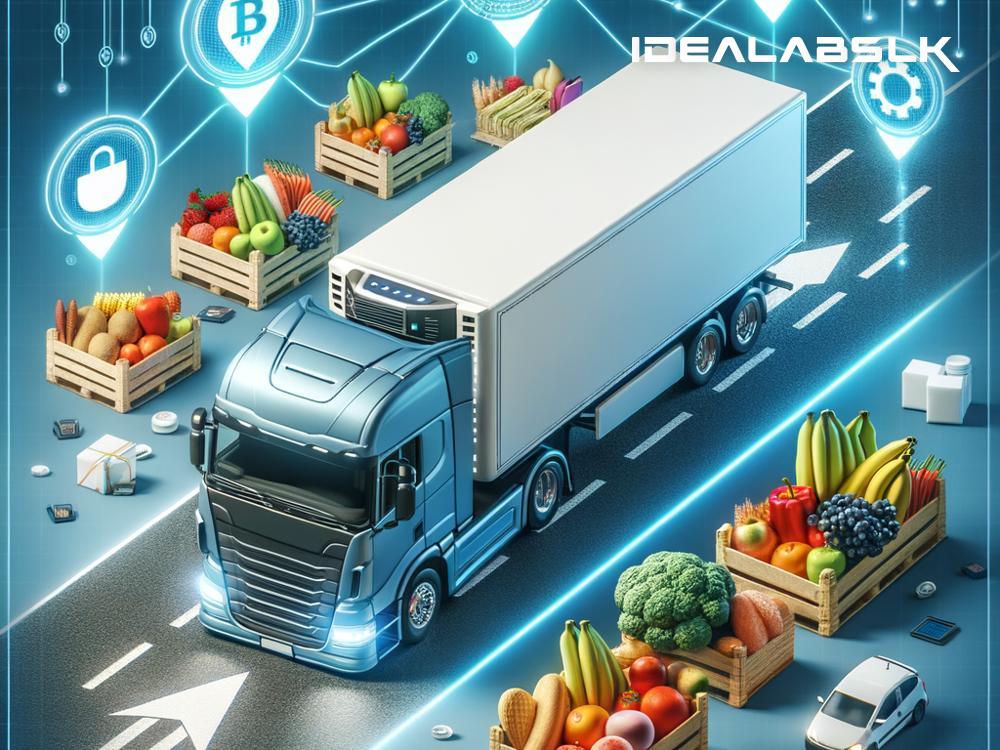Blockchain: A Fresh Approach to Curbing Food Spoilage During Transit
In the intricate dance of getting food from farms to our tables, a surprising amount of it never actually makes the final twirl. Instead, it spoils during transit, a casualty of time, temperature mishaps, and logistical errors. However, hope springs with an unlikely hero: blockchain technology. But how can a technology best known for powering cryptocurrencies like Bitcoin offer a lifeline to peaches, peas, and pork chops? Let's break it down into more digestible pieces.
The Problem of Food Spoilage
Every year, tons of food never reach consumers due to spoilage while in transit. This isn't just about losing a carton of berries or a bag of spinach; it's a much larger issue. Spoilage contributes to food scarcity, affects the livelihoods of farmers, inflates prices, and harms the environment through wasted resources. Moreover, for distributors and retailers, it translates into lost revenue and strained relationships with customers. The key culprits behind food spoilage include improper storage, delays in transit, and lack of transparency about the condition and location of products.
Enter Blockchain
So, where does blockchain fit into solving this crisis? To understand its role, we first need to grasp what blockchain is. Imagine it as a digital ledger or record book that is secure, transparent, and tamper-proof. Once data is entered in the blockchain, it cannot be altered or deleted. Each transaction or record is time-stamped and added as a new "block" to a chain of previous transactions. This information is accessible to everyone in the network but owned by no one.
How Blockchain Helps
Transparency and Real-Time Tracking
One of blockchain's superpowers is its ability to provide real-time tracking and sheer transparency at every step of the food supply chain. From the farm where a strawberry is picked to the refrigerated truck it travels in, and finally, to the supermarket shelf it ends up on, every step can be recorded on the blockchain. This means anyone in the chain, including consumers, can trace the journey of their food. If a batch of fruit takes too long to reach its destination or isn't kept at the proper temperature, it's immediately evident, and corrective action can be taken.
Reducing Counterfeit and Ensuring Authenticity
Blockchain also helps in ensuring the food's authenticity by recording its origin, handling, and all other critical details, making it nearly impossible to introduce counterfeit products into the supply chain. This is especially crucial for high-value items like organic produce or certified products, where authenticity directly affects the value and safety of food.
Streamlined Processes and Reduced Paperwork
The traditional food supply chain is bogged down by paperwork and manual processes, from harvest records to shipping logs. Blockchain can digitize these records, making them more accessible and reducing the likelihood of errors that can lead to delays. These streamlined processes mean that food can move faster and more efficiently from point A to B, reducing the time it spends in transit and, consequently, the chances of spoilage.
Enhanced Accountability and Waste Reduction
With every transaction and handling step recorded on the blockchain, there's increased accountability among all stakeholders in the food chain. If a particular batch spoils, it's easier to pinpoint the stage at which mishandling or delays occurred, allowing for better future practices. Over time, this leads to more responsible handling, reduced waste, and improved overall quality of food reaching consumers.
A Future with Less Food Spoilage?
While blockchain technology offers exciting possibilities for reducing food spoilage during transit, its success depends on widespread adoption and the commitment of all players in the food supply chain. There are challenges, including the technological upgrade costs and the need for industry-wide standards. However, as awareness grows and more success stories emerge, the tide is slowly turning.
As we move forward, envision a world where blockchain isn't just about cryptocurrencies but is a pivotal force in ensuring that the journey from farm to table is safer, more efficient, and less wasteful. The potential benefits—ranging from less food spoilage and reduced environmental impact to better food security—are substantial. It's a fresh approach indeed, with blockchain technology at the heart of a ripe solution to one of the food industry's most persistent problems.

